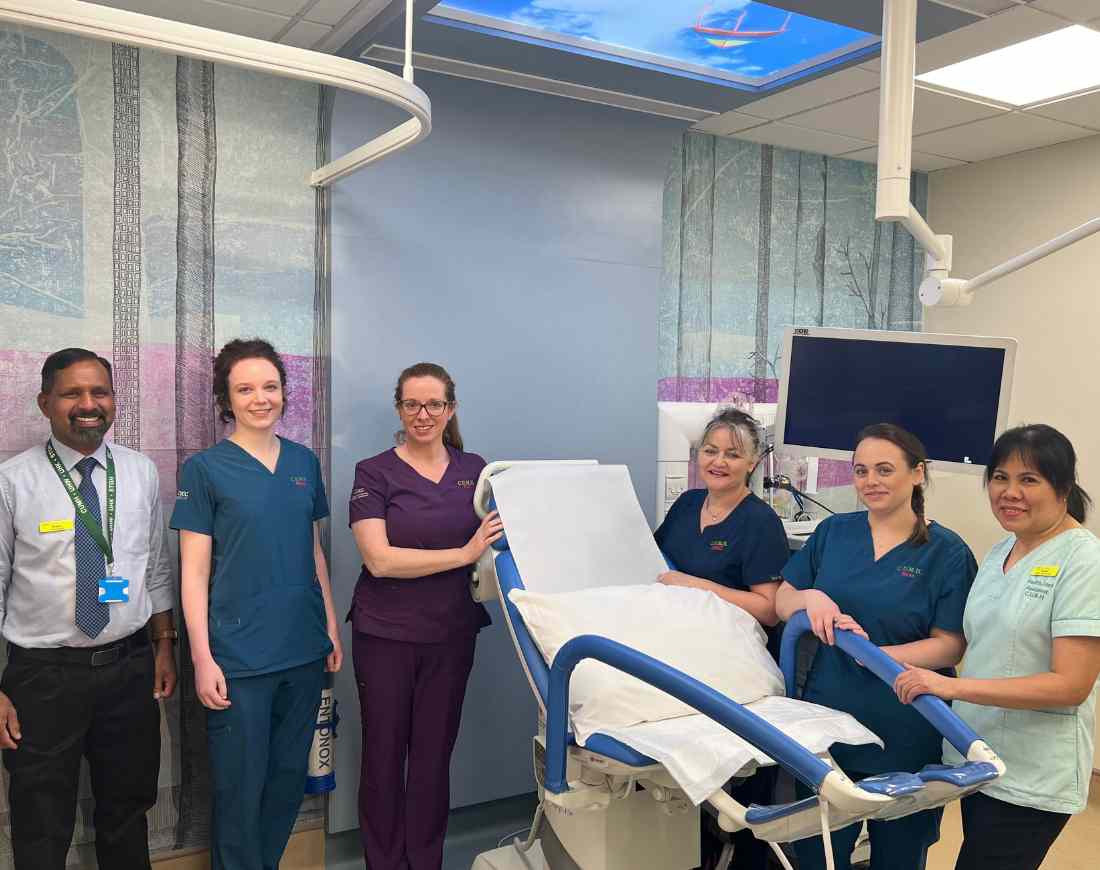Ambulatory Gynaecology
The Ambulatory Gynaecology clinic in the CUMH is a state of the art facility allowing for minor gynaecological procedures that can be performed in a clinic setting whilst you are awake and able to talk to your doctor or nurse.
The Ambulatory Gynaecology Team:

Some procedures that can be performed as ambulatory procedures are:
- Diagnostic hysteroscopy (camera test that looks inside your womb).
- Operative hysteroscopy (removal of polyps and fibroids from within the womb).
- Endometrial ablation (a treatment for heavy periods which removes the lining of the womb).
- Insertion and retrieval of intrauterine devices (e.g Mirena ®, copper IUCD).
- Vulval biopsies and removal of vulval skin tags/ cysts.
Outpatient hysteroscopy
Hysteroscopy is a procedure that allows us to look inside your womb with a camera, in order to diagnose and treat causes of abnormal vaginal bleeding. A small camera is inserted very gently into the vagina and through the cervix to view the inside of your womb. A vaginoscopic approach is performed (without the use of a speculum), making it more comfortable for the patient. A biopsy is then taken from the lining of your womb.
We are equipped with a ‘tissue removal system’, an operative hysteroscope (camera) which allows for the removal of polyps and submucosal fibroids
The clinic also sees women who have difficulty removing or inserting intrauterine contraceptive devices (Mirenas®, copper coils), uterine abnormalities or infertility.
The clinic runs 5 days per week, supported by our team of consultants, hysteroscopists, health care assistants and clerical staff.
Your appointment will take 1.5-2 hours. The procedure itself generally takes 15-20 minutes.
Some of the common benefits of opting for an ambulatory procedure include avoidance of a general anaesthetic, quicker treatment, speedy recovery in your own home around friends and family, and less invasive treatment which avoids surgical scars.
Our patient experience survey has shown that the majority of our patients respond favourably in terms of pain scores and satisfaction of the procedure with most opting for an outpatient procedure instead of a general anaesthetic, if they were to require a similar procedure in the future.
Post menopausal bleeding
Women are referred by their GPs if they have had post-menopausal bleeding. All referrals are reviewed by a Consultant and an ultrasound scan is arranged. Depending on the results of the scan, an appointment will be arranged for the patient if an outpatient hysteroscopy is needed.
What will happen at the clinic?
You will see a hysteroscopist (nurse or midwife who is specially trained to perform the above procedures) or doctor, who will ask you questions about your medical history, discuss the procedure and sign a consent form. You will be given time to ask questions about the procedure.
On the day of your procedure, you can eat and drink as normal and advised that you take pain relief an hour before your appointment time. On arrival for your appointment, you will be asked to provide a urine sample.
Following your procedure, we recommend you be collected and escorted home.
Location
Our Ambulatory Gynaecology suite is located on Ward 4 South, Cork University Maternity Hospital.

